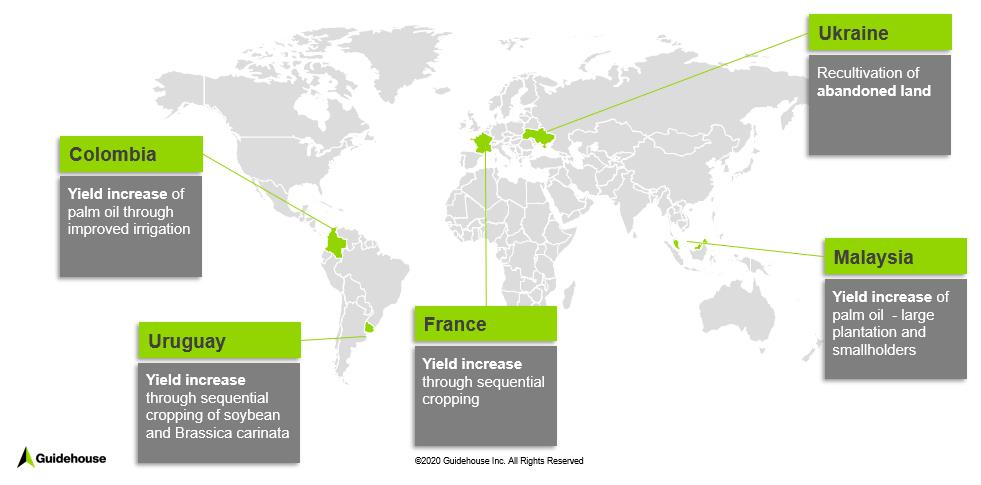On Wednesday, May 19 at 14:00-17:00 CET, the Low ILUC project team will present the first results of the project to pilot the certification of low indirect land-use change (ILUC) risk biofuels, bioliquids, and biomass fuels. The presentation will focus on the findings from the first round of audits on the five pilot projects, which took place across different geographical regions and crops. There will be an opportunity to provide us with your feedback on the Low ILUC risk certification methodology. Following the webinar, we will plan in-depth sessions on the topics of additionality, setting a dynamic yield baseline for oil palm, and sequential cropping. Please indicate your interest in these sessions via the registration link below. You can register for the webinar here!
News
The pilot audits for low ILUC-risk biomass certification are currently underway in five different countries around the world. Despite international and domestic travel restrictions due to COVID-19, the pilot audits will continue and this first round of audits will be conducted remotely in most instances, as is common practice since the start of the global pandemic.
The five pilots cover a broad range of feedstocks, including oilseeds and cereals, as well as a geographical breadth of countries. Four of the pilots focus on yield increase and one focuses on recultivation of abandoned land that was formerly agricultural land. The yield increase pilots implement sequential cropping and yield increase for a perennial crop, as these are important parts of the low ILUC-risk methodology to test and further develop.

The aim of the pilot audits is to test the low ILUC-risk certification methodology that was presented to stakeholders in a webinar last November. The methodology builds on the criteria for low ILUC-risk biofuels set out in the Delegated Regulation (EU) 2019/807, and has been converted into a draft certification standard designed to be used as an add-on to an EC-recognised voluntary scheme.
The pilots are a collaborative effort between economic operators who provide the opportunity to test a “real-life” example and provide their data and insights and local auditors who provide insight on the robustness and “auditability” of the methodology in practice. The aims of the consortium partners are to reflect on the issues confronted when implementing the methodology in practice, to review the approach, and provide advice to the Commission to further enhance it.
The findings from the first round of pilot audits will be shared in the spring. In the meantime, we invite all stakeholders to provide us with any input or questions at .
What has been driving recent tropical forest loss? A new Geo-Wiki campaign tries to elucidate the answer
We are excited to announce that as part of the LOT 1 project IIASA has started a new crowdsourcing campaign to help us understand and map the drivers of forest loss across the Tropics. The Geo-Wiki campaign will contribute to a more accurate mapping of the drivers of forest loss in the tropics. This is crucial to guide policies that can protect tropical forests, not only the most biodiverse areas of our planet but also buffers to the ever-increasing effects of climate change.
A webinar presenting the draft low ILUC-risk certification approach to be used in the pilots was held on 19 November 2020. It was attended by 150+ stakeholders from whom comments and feedback were collected.
We continue to welcome stakeholder input and feedback throughout the project. For any comments, questions, or feedback, please contact us through this link.
For those who were unable to attend, the webinar slides can be downloaded here, as well as a list of frequently asked questions.
Guidehouse and IEEP invite you to attend a webinar to present developments thus far on the guidance for the certification of low indirect land-use change (ILUC) risk biofuels, bioliquids, and biomass fuels.
The webinar will take place on Wednesday, November 19 at 15:00-16:30 CET. If you are interested in attending, please register online via this link.